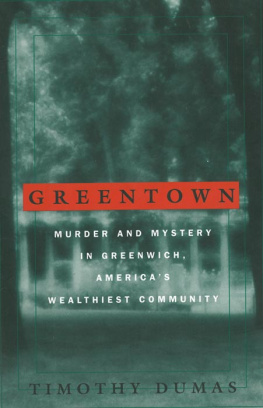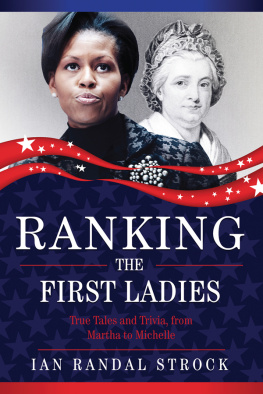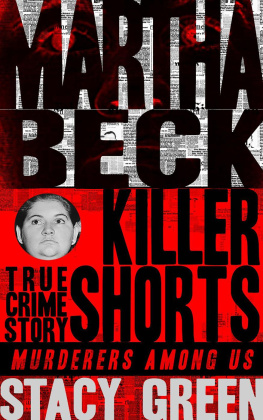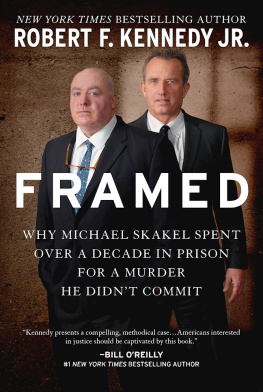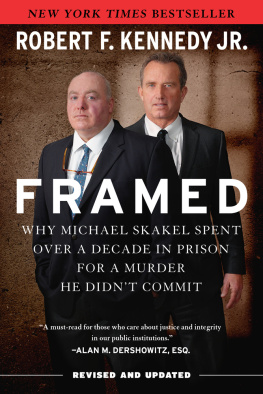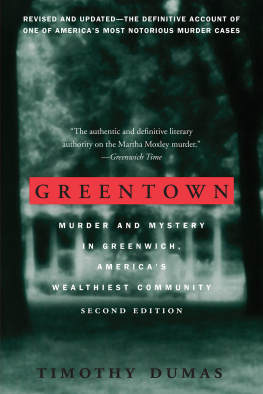All Rights Reserved. No part of this book may be reproduced in any manner without the express written consent of the publisher, except in the case of brief excerpts in critical reviews or articles. All inquiries should be addressed to Arcade Publishing, 307 West 36th Street, 11th Floor, New York, NY 10018.
Arcade Publishing books may be purchased in bulk at special discounts for sales promotion, corporate gifts, fund-raising, or educational purposes. Special editions can also be created to specifications. For details, contact the Special Sales Department, Arcade Publishing, 307 West 36th Street, 11th Floor, New York, NY 10018 or .
Arcade Publishing is a registered trademark of Skyhorse Publishing, Inc., a Delaware corporation.
Visit our website at www.arcadepub.com.
Library of Congress Cataloging-in-Publication Data is available on file.
wounds bodily and ghostly, great and small, go aching on, not evry one commemorated.
Under the charm of these rich I was as trusting and as stupid as a bird dog who wants to go out with any man with a gun.
Acknowledgments
I am deeply indebted to Dorthy Moxley, John Moxley, Sheila McGuire, Christy Kalan, and the Fuchs family for their friendship and their trust. I am equally indebted to Steve Carroll, for his insight into the early stages of the Moxley investigation.
I also wish to thank Rock Stamberg (who gave me the title), David Dumas, John Dumas, Vinton McCabe, Mike White, Tony Carvette, John Roberts, Jack and Donna Moffly, Marjorie Horvitz, Cynthia Coulson, Rod Lurie, Stephen Trent Seames, Julia Chiappetta, Lawrence Fellows, Frank Garr, and Dominick Dunne. Thanks also to Susan Richardson and Bill Finch at the Historical Society of the Town of Greenwich, and to the staff of the Greenwich Library. Thanks to my agent, Ed Novak, for getting me started. And at Arcade, thanks to Richard and Jeannette Seaver for their faith in me.
What I owe to my editor, Timothy Bent, I cannot sufficiently express. He stood by me from beginning to end, even while midwifing a far more important projectthe birth of his daughter.
Authors Note
I have changed a few names for privacys sake. Even today, nearly a quarter century after the date in questionas police call October 30, 1975, in their reportsthere are people who will agree to an interview only after a careful laying out of conditions. Spoken words in quotes come directly from interviews; spoken words not in quotes are reconstructions of dialogue; italics denote thoughts or my reconstruction of thoughts. All the material in this book comes from historical records, from hundreds of pages of police reportage, and from the dozens of interviews I have conducted over the years.


Prologue
O N THE NIGHT of October 30, 1975, as the temperature plunged to freezing in the town of Greenwich, Connecticut, fifteen-year-old Martha Moxley started home through the dark. The distance from a neighbors house to her own was not far, perhaps two hundred yards, but before she could cover it, a person unknown bludgeoned her to death with a womans six iron.
Early the next afternoon Halloween a girl cutting across the Moxleys lawn stumbled upon the corpse, lying beneath the low-hanging branches of a towering pine. The body was stripped bare below the waist, its head gashed and swollen and caked with blood. It was a maniacal attack, Stephen Carroll, a retired Greenwich police detective, recalled many years afterward. We were surprised later to find out that her hair was blond. We thought she was a redhead.
No person was ever arrested for the crime, much less convicted in a court of law. But a great many townspeople privately convicted a teenage nephew of Robert R Kennedy. The man in question, Thomas Skakel, now lives peaceably in rural Massachusetts with his wife and two children. Another man on the scene that night, a promising schoolteacher named Ken Littleton, twice failed polygraph tests and slowly fell to pieces.
The Moxley investigation unfolded with nightmarish complexity. Some found it convenient to blame the local police force, whose usual work concerned drunken drivers and burglars, for flailing about clumsily in the deep waters of a murder investigation. Others murmured about a police cover-up. Its upsetting to know the police didnt do the job they should have, John Moxley, Marthas brother, said years later. But the realist in me says, How are they supposed to know how to solve a murder? Youre in Greenwich, Connecticut. Stuff like this doesnt happen.
The Belle Haven peninsula, the part of town where Martha Moxley lived and died, posed special problems. This wealthy enclave on Long Island Sound was a distillation of the Greenwich image remote, superior, and gorgeous. But underneath, Belle Haven was a place of considerable sorrow. Broken homes, alcoholism, and drug abuse were common in the 1970s, owing chiefly to hard partying and high-pressure business careers. I must say, it was like alcoholics row, one former Belle Haven resident, Cynthia Bjork, said. Id never seen so many alcoholics in my life!
Belle Haven suffered a freakishly high incidence of premature deaths. Cancers, plane crashes, drug overdoses, and suicides took many residents in the bloom of their lives and multiplied the sorrow. And so, whether by circumstance or accident, Belle Haven came to seem a menagerie of eccentrics. On Halloween of 1975, as far as the police were concerned, a person worthy of suspicion dwelled in almost every house. I couldnt get over it, Steve Carroll told me. Oh my God all this money, and these people had such problems.
Today Belle Haven seems scrubbed clean of those old problems. People dont drink as they once did, and there are new people with new money who have begun to tear down the old houses and build bigger ones. (One new Belle Haven palace under construction boasts a twenty-seven-car garage.) But Marthas death occurred at a precise time in the neighborhoods history, a time when the maze of personal crises was at its most baffling.
Meanwhile, the rest of Greenwich looked on in horror. Murder had struck in town before (most recently in 1973, when a despondent old man shot his wife and her French poodle), but there had been nothing as appalling and mysterious as this. Greenwich is a peaceful town but also a secretive one. On certain days the air seems dense with secrets, which whirl around like autumn leaves in a storm. Did you ever see the movie Blue Velvet? Christy Kalan, who had been one of Marthas closest friends, asked me. You have this nice peaceful town with all this stuff seething underneath. I think thats a lot like Greenwich. Everything seems so perfect on the surface and thats just multiplied with all the money and all the high society but beneath it theres all this junk going on.
This confounding atmosphere, as much as the failings of an untested police force, is why the Moxley investigation became so hard to navigate. The more information detectives amassed, the hazier the picture turned, until they found themselves adrift in a sea of clues. My own encounter with the case left me feeling as though I were standing on a hieroglyph discernible only from a birds altitude, or chasing a squirrel in a room full of fog. Answers seemed close but never within reach.

